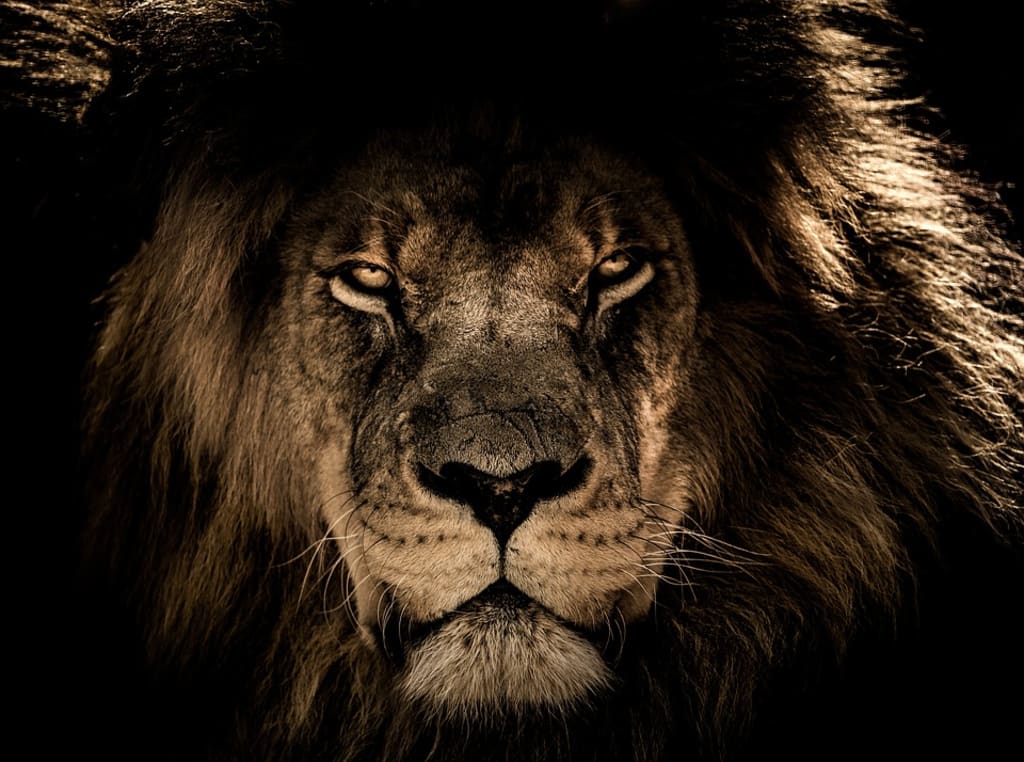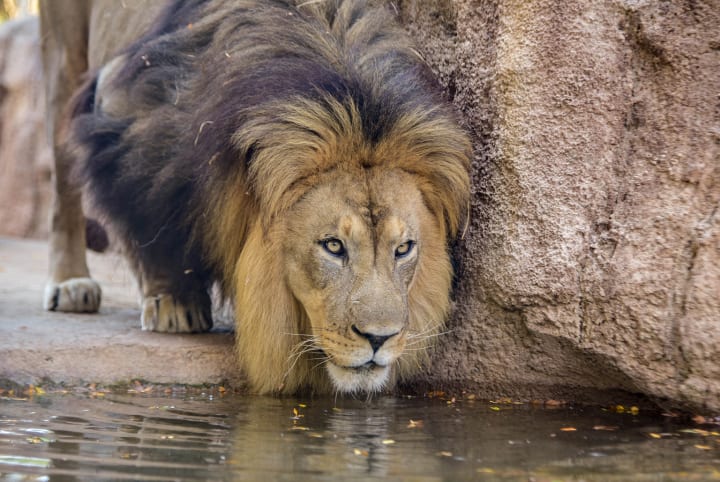King of the Jungle
The apex predator of all animals that roam in the wild

Lions are undoubtedly one of the most fascinating animals on the planet. They are known for their regal and majestic appearance, as well as their ferociousness in the wild. In this article, we will explore the behavior and tendencies of lions, their evolution process throughout the years, and where they inhabit and live around the world.
Behavior and Tendencies of Lions
Lions are known for their social nature, and they live in groups called prides. These prides usually consist of a few males, a dozen females, and their young offspring. The male lions are responsible for protecting the pride's territory, while the females are in charge of hunting and caring for the young.
Lions are apex predators, and they have no natural enemies in the wild. Their primary prey is usually large mammals, such as zebras, buffalos, and antelopes. They are also known to hunt smaller animals like rabbits and birds. Lions are primarily nocturnal, and they spend most of their time sleeping during the day.
When it comes to hunting, lions use a combination of stealth, teamwork, and strength to take down their prey. The females usually work together to stalk and ambush their prey, while the males provide support by fighting off any potential threats.

One of the most striking features of lions is their roar. Lions use their roar to communicate with each other, marking their territory, and attracting mates. The roar of a lion can be heard up to five miles away.
Why are they named the Kings of the Jungle?
Despite their name, lions don't actually live in the jungle. They are primarily found in grasslands, savannas, and semi-arid regions across Africa. However, their regal appearance, hunting prowess, and social structure have earned them the title of "kings of the jungle."
The term "jungle" was originally used to describe dense, tropical forests. However, over time, it has come to represent any wild, untamed place. Lions, with their fierce reputation and powerful presence, embody the idea of a wild and untamed king ruling over the animal kingdom.

Evolution Process of Lions
Lions have a long and complex evolutionary history. They belong to the Panthera genus, which includes other big cats such as tigers, leopards, and jaguars. Scientists believe that lions evolved around 1.2 million years ago, during the late Pleistocene era.
The earliest known lion species was the Panthera leo fossilis, which lived in Europe and Asia around 700,000 years ago. Over time, lions began to spread across Africa, adapting to different environments and evolving into various subspecies.
Today, there are only two subspecies of lions left in the wild: the African lion and the Asiatic lion. African lions are found in sub-Saharan Africa, while Asiatic lions are found only in the Gir Forest of India.
Lions have also played an important role in human history. Ancient civilizations, such as the Egyptians, revered lions and often depicted them in art and mythology. Lions were also used as symbols of power and strength by kings and rulers throughout history.

Where do Lions Inhabit and Live Around the World?
Lions are found primarily in sub-Saharan Africa, where they inhabit a variety of habitats, including grasslands, savannas, and semi-arid regions. The largest populations of lions are found in Tanzania, Kenya, and South Africa.
Asiatic lions, on the other hand, are found only in the Gir Forest of India. Once widespread across Asia, the Asiatic lion was hunted to near extinction in the 19th century. Today, there are only around 500 Asiatic lions left in the wild.
Lions are also found in some of Africa's protected areas, such as national parks and game reserves. These areas provide a safe haven for lions and other wildlife, protecting them from habitat loss and hunting.
One of the most famous national parks for lions is the Maasai Mara National Reserve in Kenya. This reserve is home to the "Great Migration," where millions of wildebeests and zebras migrate through the area each year, providing an abundant source of food for lions.

Another popular destination for lion safaris is the Kruger National Park in South Africa. This park is home to one of the highest concentrations of lions in Africa, with over 2,000 individuals.
Despite their protected status, lions still face many threats in the wild. Habitat loss, poaching, and conflicts with humans are all major threats to lion populations. In recent years, there has been a decline in lion populations, with some estimates suggesting that their numbers have decreased by as much as 43% over the past two decades.
Conservation efforts are underway to protect lions and their habitats. These efforts include the establishment of protected areas, anti-poaching campaigns, and community education programs. By working together, we can ensure that these magnificent creatures continue to roam the wilds for generations to come.
In conclusion, lions are truly one of nature's most remarkable creations. Their social nature, hunting prowess, and regal appearance have captured our imaginations for centuries. While they may be known as the "kings of the jungle," lions inhabit a wide range of habitats and are an important part of many ecosystems.
As we continue to learn more about lions and their behavior, we can work to protect them and their habitats from the many threats they face. By doing so, we can ensure that these magnificent creatures continue to thrive in the wild for generations to come.
About the Creator
Aaron Volf
Discover a new perspective on life through my eyes. With a unique voice, attention to detail, and a passion for exploring new ideas, my writing will leave you inspired, informed, and eager for more.
Enjoyed the story? Support the Creator.
Subscribe for free to receive all their stories in your feed. You could also pledge your support or give them a one-off tip, letting them know you appreciate their work.






Comments
There are no comments for this story
Be the first to respond and start the conversation.